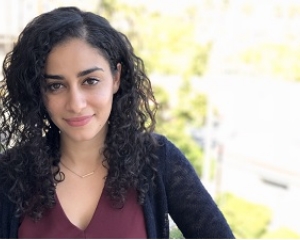Not Getting In
Not getting into medical school can feel like the end of the world. When applying, very rarely do we consider a Plan B so if we are not successful in getting onto a course it can be all the more soul-crushing. You can feel like a complete failure, letting down those around you. However, an unsuccessful application is not the end of the road. After getting rejected, if being a doctor is still what you want, then you can achieve this.
If you have been unsuccessful, it’s important to reflect on why you haven’t got into medical school, as this will determine your next step. Broadly speaking, three of the most common reasons for not getting into medical school are being rejected before an interview, being rejected after an interview or not meeting the academic offer. To find out the exact reasons for your unsuccessful application, don’t hesitate to contact each medical school you have applied to in order to get feedback. If you decide to take a gap year, we guarantee your offer next year or you can get your money back through our Complete Medicine Bundle.
What Can You Do?
If you have been rejected before an interview, it is likely you either haven’t performed well enough in the admissions test or you haven’t ticked all the boxes on your personal statement. If you haven’t performed sufficiently on the admissions test, it’s worth noting you are likely to improve on the second time of taking the test, as you will be more used to sitting the exam. Contrary to belief you can do a lot of preparation for test as the UCKAT: fully utilising practice resources (practicing under timed conditions) as well as attending courses such as the 6med UCAT crash course are ways that are very likely to improve your score.
If your personal statement hasn’t shown enough suitability, it is likely you haven’t undertaken enough relevant work experience. If you are taking a year out, you will have plenty of time to get an array of experiences. Consider working as a Healthcare assistant, sitting in on GP consultations or even volunteering at a local hospice. Once you have these experiences, when communicating these on your statement it is important to express what you have learnt about the profession from it and how it has made you realise that you are suitable for this career path.
If you’re worried your personal statement may not hit the mark, be sure to check out our collection of free guides, starting with our personal statement Definitive Guide!
If you have been rejected after an interview, most medical schools will give you specific feedback should you request it. If you were too nervous, if you struggle to get your ideas across in a short time or if you found the questions difficult to answer, the solution is the same: practice. If you reapply and are invited to interviews, do as much practice as you can before hand. Learn your personal statement (as the interviewer most likely hasn’t read it), read Medical school interview books (such as this one) and make sure you know as much as you can about the interview process (e.g. will there be stations, what is being assessed at each station, etc). Everyday, practice saying aloud your responses to common interview questions in front of someone else who is comfortable to give you feedback. Strategies such as these will boost your confidence as well as your performance.
If you want to learn about the whole process of reapplying to medical school, check out our Medical School Reapplication Guide.

Closing Remarks
Speaking as someone that didn’t make the grades for their offer in sixth form, it can feel enormously disappointing and as if the door to becoming a doctor is closed forever. It is of course understandable to feel this way for some time. However, if Medicine is really for you, if it’s the only thing you see yourself doing in ten, twenty even forty years time, then you need to make it happen. Even if you succeed in getting in on your first attempt, there will be struggles in every career (failing exams at Medical school, not getting the speciality training placement you want as a doctor) so it’s very important to have a determined mentality.
Not sure where to go next for your Med School Preparation?
6med has guides that cover every stage of the application to give you the confidence to get your spot on your dream course! Some of our top guides include:
Reapplying next year? Give yourself the best chance of Medicine Success.
The Complete Bundle provides you with the best support for your Personal Statement, UCAT, BMAT and Interview and guides you to a successful application.
With our Complete Bundle, we guarantee that you will get at least one offer to study Medicine, or your money back.

